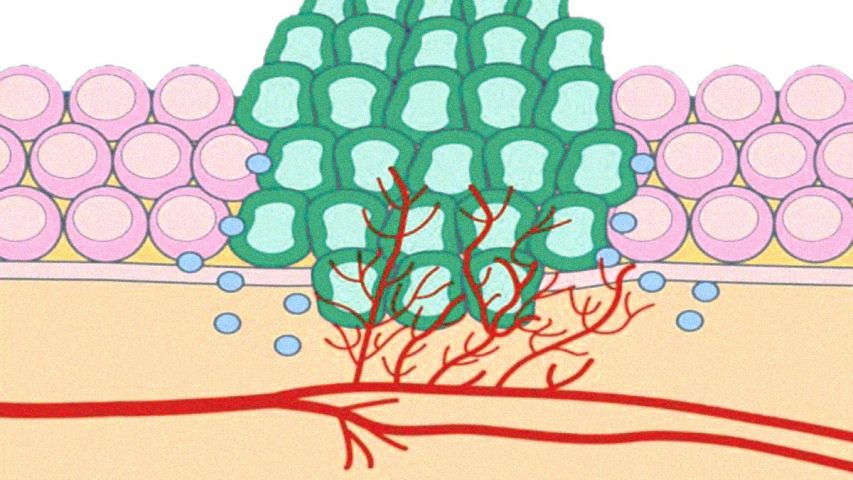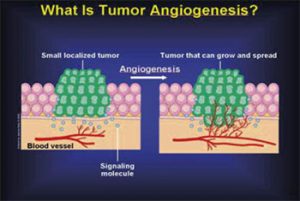- Have any questions? Contact us!
- info@dr-rath-foundation.org

Prostate Cancer Can Respond To Micronutrient Synergy
October 4, 2017
Strong Connective Tissue: A Key Factor In Controlling Cancer Metastasis
October 4, 2017Micronutrient Synergy Can Curb Blood Supply In Tumors

 Angiogenesis is a physiological process in the body where new blood vessels develop from the pre-existing blood vessels. An ability to form new blood vessels is necessary for healthy body function and repair (i.e., wound healing). However, this process is hijacked by cancer cells to support faster growth of tumors and the spread of cancer.
Angiogenesis is a physiological process in the body where new blood vessels develop from the pre-existing blood vessels. An ability to form new blood vessels is necessary for healthy body function and repair (i.e., wound healing). However, this process is hijacked by cancer cells to support faster growth of tumors and the spread of cancer.
A tumor cannot grow beyond 1-2 mm in diameter without developing its own blood supply to meet its nutrient requirements. Therefore, cancer cells stimulate the surrounding cells to produce specific angiogenic factors, which promote the growth of new blood vessels. Among many such biological factors, the most prominent are vascular endothelial growth factor (VEGF) and fibroblast growth factor (FGF).
It is interesting that over 40 years ago the idea that tumor angiogenesis was important in cancer development was disregarded. Subsequently, it took almost a decade for it to become accepted. Today there are many pharmaceutical drugs that have been developed to inhibit angiogenesis. While these drugs may initially shrink or stabilize tumors, their effects do not last as cancer becomes resistant to them and finds other pathways to circumvent their inhibitory effect. Furthermore, some studies have shown that these drugs can even promote more invasive cancer growth. In addition, they are associated with serious side effects such as heart attacks, strokes, kidney failure and perforation of digestive organs.
Since the search for safe and effective inhibitors of angiogenesis continues, we looked for natural solutions that can regulate this important process in cancer. Our previous research had shown that a specific micronutrient combination could suppress tumor growth and inhibit the invasion of cancer cells into the tissue. Therefore, we investigated whether this combination could also affect the formation of blood vessels in tumors and various factors involved in angiogenesis.
We found that these micronutrients could strongly suppress angiogenesis induced by FGF in embryos. Moreover, we demonstrated that when mice receive the micronutrients in their diet they develop tumors about 53% smaller than those found in mice on a normal diet. These tumors had significantly less blood supply and therefore received a limited supply of nutrients and oxygen. This result was not surprising since the secretion of VEGF and FGF – key factors promoting angiogenesis – was reduced1 in these mice by 72% and 45%, respectively. Unlike a drug, the micronutrients can affect various biological mechanisms involved in angiogenesis simultaneously. We could see that these micronutrients could also completely (100%)2 inhibit the migration and attachment of blood vessel endothelial cells, which are essential steps in the formation of vascular tubes.
According to an industry analysis report, the global market for angiogenesis drugs is estimated to reach $53.5 billion by 2015. Our results clearly indicate that natural and economical alternative solutions are within sight. The efficacy of nutrient synergy confirms that the most effective approach in attacking cancer is through targeting its multiple mechanisms simultaneously, including angiogenesis.
Ref:
- M.W. Roomi, et al., Oncology Reports 2005, 14(4): 807-815
- M.W. Roomi, et al., Anti-Angiogenic Functional and Medicinal Foods, 2007,
CRC Press, Boca Raton, London, NY, p:561-580.



